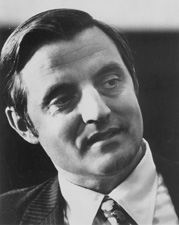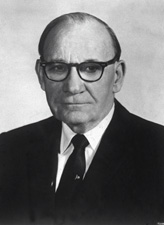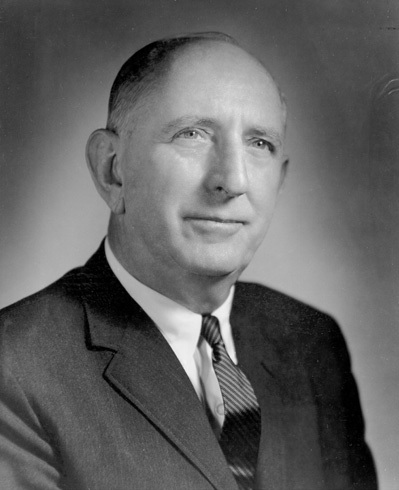|
1966 United States Senate Election In Minnesota
The 1966 United States Senate election in Minnesota took place on November 8, 1966. Incumbent Democratic U.S. Senator Walter Mondale, who had originally been appointed in 1964 to replace Hubert Humphrey after Humphrey was elected Vice President of the United States, defeated Republican challenger Robert A. Forsythe, to win a full term. Democratic–Farmer–Labor primary Candidates Declared * Ralph E. Franklin * Walter Mondale, Incumbent U.S. Senator since 1964 Results Republican primary Candidates Declared * Robert A. Forsythe, businessman * Henry A. Johnsen Results General election Results See also * United States Senate elections, 1966 References {{United States elections, 1966 Minnesota 1966 Events January * January 1 – In a coup, Colonel Jean-Bédel Bokassa takes over as military ruler of the Central African Republic, ousting President David Dacko. * January 3 – 1966 Upper Voltan coup d'état: President Maurice Yaméogo ... 196 ... [...More Info...] [...Related Items...] OR: [Wikipedia] [Google] [Baidu] |
Walter Mondale
Walter Frederick "Fritz" Mondale (January 5, 1928 – April 19, 2021) was an American lawyer and politician who served as the 42nd vice president of the United States from 1977 to 1981 under President Jimmy Carter. A U.S. senator from Minnesota from 1964 to 1976, he was the Democratic Party's nominee in the 1984 presidential election, but lost to incumbent Ronald Reagan in an Electoral College and popular vote landslide. Reagan won 49 states while Mondale carried his home state of Minnesota and the District of Columbia. His vice presidential nominee, U.S. Representative Geraldine Ferraro from New York, was the first female vice-presidential nominee of any major party in U.S. history. Mondale was born in Ceylon, Minnesota, and graduated from the University of Minnesota in 1951 after attending Macalester College. He then served in the U.S. Army during the Korean War before earning a law degree in 1956. He married Joan Adams in 1955. Working as a lawyer in Minneapolis, Mond ... [...More Info...] [...Related Items...] OR: [Wikipedia] [Google] [Baidu] |
Hubert Humphrey
Hubert Horatio Humphrey Jr. (May 27, 1911 – January 13, 1978) was an American pharmacist and politician who served as the 38th vice president of the United States from 1965 to 1969. He twice served in the United States Senate, representing Minnesota from 1949 to 1964 and 1971 to 1978. As a senator he was a major leader of modern liberalism in the United States. As President Lyndon B. Johnson's vice president, he supported the controversial Vietnam War. An intensely divided Democratic Party nominated him in the 1968 presidential election, which he lost to Republican nominee Richard Nixon. Born in Wallace, South Dakota, Humphrey attended the University of Minnesota. In 1943, he became a professor of political science at Macalester College and ran a failed campaign for mayor of Minneapolis. He helped found the Minnesota Democratic–Farmer–Labor Party (DFL) in 1944; the next year he was elected mayor of Minneapolis, serving until 1948 and co-founding the liberal an ... [...More Info...] [...Related Items...] OR: [Wikipedia] [Google] [Baidu] |
Vice President Of The United States
The vice president of the United States (VPOTUS) is the second-highest officer in the executive branch of the U.S. federal government, after the president of the United States, and ranks first in the presidential line of succession. The vice president is also an officer in the legislative branch, as the president of the Senate. In this capacity, the vice president is empowered to preside over Senate deliberations at any time, but may not vote except to cast a tie-breaking vote. The vice president is indirectly elected together with the president to a four-year term of office by the people of the United States through the Electoral College. The modern vice presidency is a position of significant power and is widely seen as an integral part of a president's administration. While the exact nature of the role varies in each administration, most modern vice presidents serve as a key presidential advisor, governing partner, and representative of the president. The vice president ... [...More Info...] [...Related Items...] OR: [Wikipedia] [Google] [Baidu] |
United States Senate Elections, 1966
The 1966 United States Senate elections were elections on November 8, 1966 for the United States Senate which occurred midway through the second (and only full) term of President Lyndon B. Johnson. The 33 seats of Class 2 were contested in regular elections. Special elections were also held to fill vacancies. With divisions in the Democratic base over the Vietnam War, and with the traditional mid-term advantage of the party not holding the presidency, the Republicans took three Democratic seats. Despite Republican gains, the balance remained overwhelmingly in favor of the Democrats, who retained a 64–36 majority. These were also the first elections held after the enactment of the Voting Rights Act of 1965. Upon Edward Brooke's election in Massachusetts, he became the first African-American U.S. Senator elected after the end of Reconstruction and the first-ever popularly elected, as Reconstruction ended before the passage of the Seventeenth Amendment to the United States Co ... [...More Info...] [...Related Items...] OR: [Wikipedia] [Google] [Baidu] |
1966 United States Senate Elections
The 1966 United States Senate elections were elections on November 8, 1966 for the United States Senate which occurred midway through the second (and only full) term of President Lyndon B. Johnson. The 33 seats of Class 2 were contested in regular elections. Special elections were also held to fill vacancies. With divisions in the Democratic base over the Vietnam War, and with the traditional mid-term advantage of the party not holding the presidency, the Republicans took three Democratic seats. Despite Republican gains, the balance remained overwhelmingly in favor of the Democrats, who retained a 64–36 majority. These were also the first elections held after the enactment of the Voting Rights Act of 1965. Upon Edward Brooke's election in Massachusetts, he became the first African-American U.S. Senator elected after the end of Reconstruction and the first-ever popularly elected, as Reconstruction ended before the passage of the Seventeenth Amendment to the United States C ... [...More Info...] [...Related Items...] OR: [Wikipedia] [Google] [Baidu] |
United States Senate Elections In Minnesota
United may refer to: Places * United, Pennsylvania, an unincorporated community * United, West Virginia, an unincorporated community Arts and entertainment Films * ''United'' (2003 film), a Norwegian film * ''United'' (2011 film), a BBC Two film Literature * ''United!'' (novel), a 1973 children's novel by Michael Hardcastle Music * United (band), Japanese thrash metal band formed in 1981 Albums * ''United'' (Commodores album), 1986 * ''United'' (Dream Evil album), 2006 * ''United'' (Marvin Gaye and Tammi Terrell album), 1967 * ''United'' (Marian Gold album), 1996 * ''United'' (Phoenix album), 2000 * ''United'' (Woody Shaw album), 1981 Songs * "United" (Judas Priest song), 1980 * "United" (Prince Ital Joe and Marky Mark song), 1994 * "United" (Robbie Williams song), 2000 * "United", a song by Danish duo Nik & Jay featuring Lisa Rowe Television * ''United'' (TV series), a 1990 BBC Two documentary series * '' United!'', a soap opera that aired on BBC One from 1965- ... [...More Info...] [...Related Items...] OR: [Wikipedia] [Google] [Baidu] |
1966 Minnesota Elections
Events January * January 1 – In a coup, Colonel Jean-Bédel Bokassa takes over as military ruler of the Central African Republic, ousting President David Dacko. * January 3 – 1966 Upper Voltan coup d'état: President Maurice Yaméogo is deposed by a military coup in the Republic of Upper Volta (modern-day Burkina Faso). * January 10 ** Pakistani–Indian peace negotiations end successfully with the signing of the Tashkent Declaration, a day before the sudden death of Indian prime minister Lal Bahadur Shastri. ** The House of Representatives of the US state of Georgia refuses to allow African-American representative Julian Bond to take his seat, because of his anti-war stance. ** A Commonwealth Prime Ministers' Conference convenes in Lagos, Nigeria, primarily to discuss Rhodesia. * January 12 – United States President Lyndon Johnson states that the United States should stay in South Vietnam until Communist aggression there is ended. * January 15 – 1966 Nigerian coup ... [...More Info...] [...Related Items...] OR: [Wikipedia] [Google] [Baidu] |




